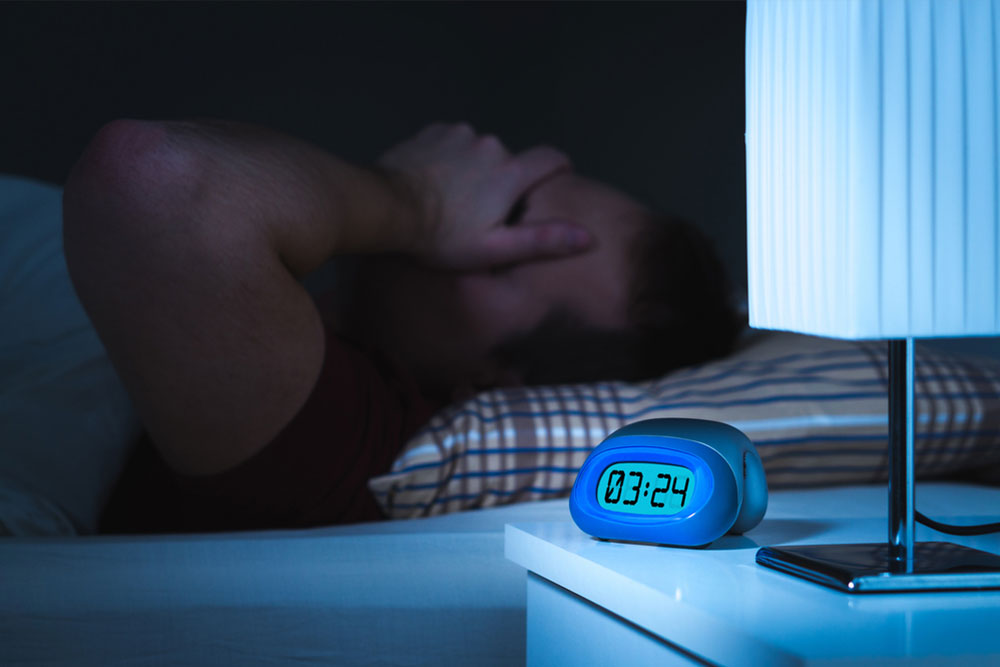Comprehensive Guide to Understanding Insomnia: Causes, Symptoms, and Effective Solutions
This comprehensive guide explores the causes, symptoms, and management strategies for insomnia. Understanding the various factors influencing sleep quality can help individuals develop effective solutions. From lifestyle changes to professional treatments, learn how to overcome insomnia and improve overall well-being with practical approaches and expert advice.

Insomnia is a prevalent sleep disorder that affects millions of individuals worldwide, disrupting their ability to obtain restful, restorative sleep. It manifests primarily through difficulties in falling asleep, maintaining sleep throughout the night, or waking up too early and being unable to return to sleep. This persistent problem often results in individuals waking up feeling unrefreshed, leading to decreased energy, impaired concentration, mood disturbances, and overall reduced quality of life. In this comprehensive guide, we delve into the various causes of insomnia, its symptoms, and practical strategies to manage and overcome this condition effectively.
Understanding Insomnia: An In-Depth Overview
Insomnia is classified into two main types: acute and chronic. Acute insomnia typically lasts for a few nights to a couple of weeks and is often linked to temporary stressors or environmental changes. On the other hand, chronic insomnia persists for months or longer, often requiring targeted interventions. Recognizing the difference is vital for seeking appropriate treatment.
Common Causes of Insomnia
Stress and Anxiety: One of the leading causes of insomnia is heightened stress or anxiety related to personal, professional, or health concerns. Chronic stress can interfere with the body's ability to transition into restful sleep, causing frequent awakenings and difficulty falling asleep.
Irregular Sleep Schedules: Disrupted sleep routines, such as those caused by shift work, travel across time zones, or inconsistent bedtimes, significantly impact circadian rhythms, leading to sleep difficulties.
Poor Sleep Environment: An uncomfortable or noisy bedroom, excessive light, or unsuitable sleeping conditions can prevent individuals from achieving quality sleep.
Unhealthy Lifestyle Habits: Consuming caffeine late in the day, smoking nicotine, or substance abuse can interfere with the sleep cycle. Additionally, lack of physical activity or excessive screen time before bed can hinder sleep onset.
Medical Conditions and Medications: Certain medical conditions such as asthma, GERD, chronic pain, and neurological disorders can disrupt sleep. Some medications, including antidepressants, corticosteroids, and beta-blockers, may also contribute to insomnia as side effects.
Diet and Substance Use: Eating heavy meals close to bedtime or excessive alcohol intake can impair sleep quality. While alcohol may initially induce sleep, it often results in fragmented rest later in the night.
Recognizing the Symptoms of Insomnia
Identifying the symptoms of insomnia is crucial for diagnosis and treatment. Common signs include:
Difficulties falling asleep within 30 minutes of going to bed
Frequent awakenings during the night
Waking up too early and being unable to fall back asleep
Feeling tired or unrefreshed after waking up
Daytime sleepiness, fatigue, or irritability
Poor concentration and memory issues
Impact of Chronic Insomnia on Health and Well-Being
Chronic insomnia can have severe repercussions beyond daytime fatigue. It is associated with increased risks of cardiovascular diseases, depression, anxiety disorders, weakened immune function, and metabolic issues such as weight gain and diabetes. The ripple effects can impair personal relationships, reduce work productivity, and diminish overall quality of life.
Effective Strategies for Managing Insomnia
Tackling insomnia often requires a multifaceted approach. Here are several scientifically supported strategies:
1. Improve Sleep Hygiene
Consistent Sleep Schedule: Going to bed and waking up at the same time every day helps regulate your internal clock.
Optimal Sleep Environment: Ensure your bedroom is dark, quiet, and cool. Use blackout curtains and earplugs if necessary.
Avoid Screens Before Bed: Limit exposure to blue light from phones, tablets, and computers at least one hour before sleep.
Limit Stimulating Activities: Engage in relaxing activities such as reading or listening to calming music before bed.
2. Lifestyle and Behavioral Changes
Manage Stress: Practice relaxation techniques like meditation, deep breathing exercises, or yoga.
Limit Caffeine and Alcohol: Avoid caffeine after mid-afternoon and reduce alcohol intake, especially close to bedtime.
Regular Exercise: Incorporate daily physical activity, but avoid vigorous exercise close to bedtime.
Cognitive Behavioral Therapy (CBT): This evidence-based approach helps change negative thought patterns and behaviors related to sleep.
3. Medical Interventions and Professional Help
If lifestyle changes are insufficient, consulting a healthcare provider is essential. Doctors may recommend short-term use of sleep aids, but these should be used cautiously and under supervision. Underlying health conditions should be diagnosed and treated appropriately. Cognitive behavioral therapy for insomnia (CBT-I) stands out as a highly effective and sustainable treatment option.
When to Seek Professional Help
If sleep disturbances persist for more than a few weeks despite adopting healthy sleep practices, it is vital to seek medical advice. Persistent insomnia may indicate underlying health issues such as sleep apnea, restless leg syndrome, or mental health conditions that require specialized treatment.
Conclusion
Insomnia is a complex condition influenced by various factors, from lifestyle habits to underlying health issues. Recognizing the causes and symptoms is the first step toward effective management. Implementing good sleep hygiene, adopting healthy lifestyle practices, and seeking professional support when necessary can significantly improve sleep quality and overall health. Addressing insomnia early can prevent its long-term complications and contribute to a healthier, more energized life.





